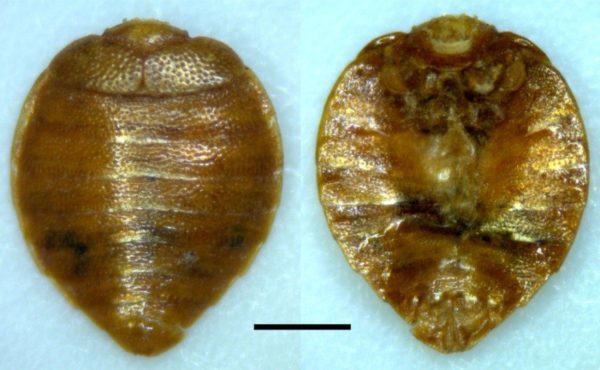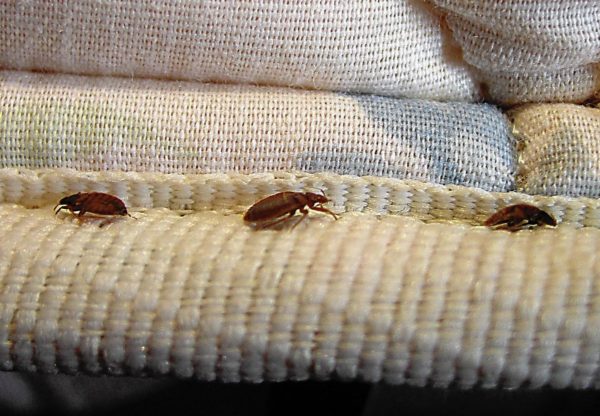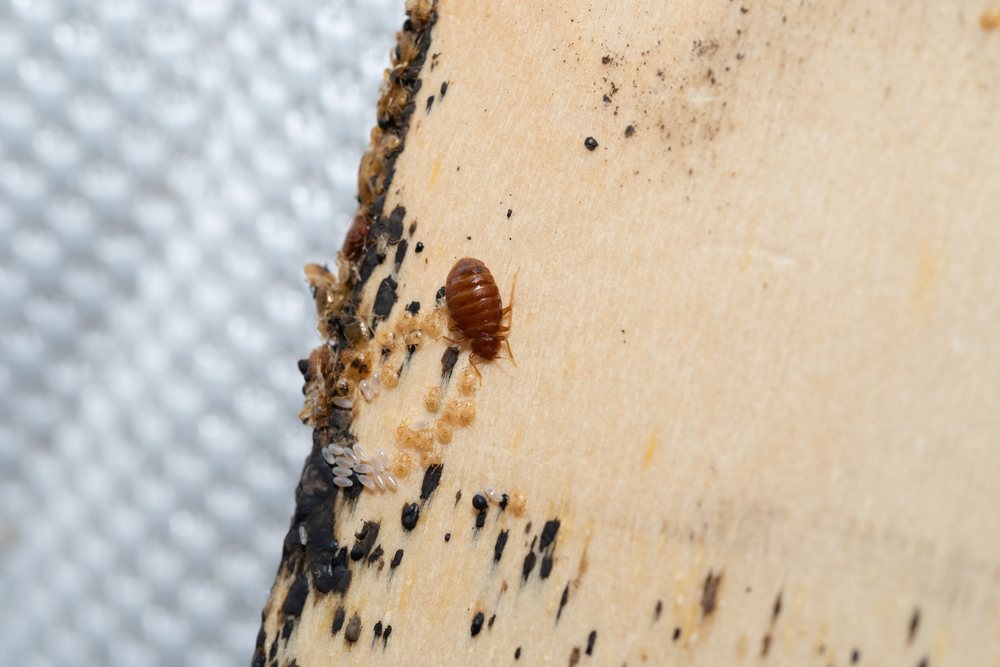When you hear about bed bugs, a classic rhyme comes to mind…
“Good night, sleep tight, don’t let the bed bugs bite!”
That phrase is relatively new. It was only coined in 1896.
But humanity’s relationship with bed bugs goes back much further.
Like so many other pests, bed bugs started gaining prominence during the earliest days of human civilization. They were well known to the Egyptians, Greeks, Romans, and the numerous European kingdoms of the Middle Ages.
In short, bed bugs have been with us since prehistoric times.
It’s often said that the past can give us insight into the present.
And at a time when bed bug infestations are on the rise, one has to wonder…
How did bed bugs become such a problem for us?
Let’s dive in.
Page Contents:
Where Did Bed Bugs Come From Originally?
Picturing an environment filled with ancient bed bugs isn’t easy. After all, if these tiny parasites have been feeding on human blood for millenia, how could they have possibly ever survived without us?
The answer is simple.
Prehistoric bed bugs survived off of bats.

Since bats are nocturnal, they’ll spend the daylight hours sleeping in caves or other dark, remote areas. Bed bugs of the ancient world took advantage of this and fed off bats’ blood while they slept.
Modern bed bugs operate similarly. They only come out to feed after we fall asleep.
It’s theorized that, as prehistoric humans began taking shelter in these caves, bed bugs began to view them as an additional source of food. Once humans moved out of the caves and began building societies…
Bed bugs went with them.
When Did Bed Bugs Originate?
The earliest known ancestors of bed bugs, known collectively as the Cimcidae family, first evolved over 115 million years ago.
This means they appeared during the mid-Cretaceous period, the period in time where the dinosaurs began their slow decline toward extinction…
And where the earliest ancestors of mammals, who would one day inherit the Earth, first emerge in the fossil record.

Interestingly, the Cimicidae insects evolved a full 65 million years before the first bats. It’s possible that they fed off of other mammals (scientists agree that the dinosaurs weren’t a part of the Cimicidae family’s diet), but eventually these prehistoric bed bugs would go on to live off of bats and birds.
The Cimicidae insects would diverge into 2 subspecies over the next few million years:
1. Cimex lectularius (the common bed bug) would go on to afflict human populations all over the world.
2. Cimex hemipterus (the tropical bed bug) evolved to live only in warmer climates.
How Did They Get Rid of Bed Bugs in the Old Days?
If you’re dealing with a bed bug infestation today, then you’re likely to call upon an exterminator to treat your house. It’s a process that’s simple and effective, if admittedly a bit costly.
But heat treatments and chemical pesticides are still recent developments.
For almost all of human history, people had to make due without the advantages of modern pest control.
So… how did they do it?
People back then used techniques that, to a modern observer, are quite similar to natural or homemade methods of bed bug removal.
In the past, people would use scented herbs, spices or oils to repel bed bugs. Items like mint, turpentine and lavender were commonly used back then.

To this day, many of those same objects remain popular as natural deterrents.
Dust and soil were also used to suffocate bed bugs. Diatomaceous earth, first discovered in the 1830s, quickly proved to be an effective substitute: diatomaceous particles can embed themselves into a bed bug’s exoskeleton, slowly killing it from the inside.
Smoke, which has always deterred insects of all kinds, acted as a prototypical fumigation technique.
Once pesticides like DDT were developed, many of these traditional methods were either outright abandoned or relegated to secondary options. By the 1950s, pesticides had all but wiped out the bed bug population in the United States.
Did People Use Bed Bugs as Medicine?
When people weren’t busy trying to kill bed bugs, they made attempts to gain some medicinal use out of them.
The ancient Egyptians believed that bed bugs, if mixed with the proper ingredients, could create an antivenom to treat snake bites.
In the early days of the Roman Empire, the scholar Pliny the Elder touted bed bugs as an effective ingredient for certain medicines. In his Natural History, he explicitly mentions bed bugs (referred to only as “the bugs” by Pliny) being used to treat snake bites and ear infections.

Bed bugs were still used in medicine as far as the 18th-century.
Jean-Étienne Guettard, a French naturalist, endorsed the idea that bed bugs could be used to treat hysteria in women.
With the advent of modern medicine, bed bugs as a medical ingredient fell out of fashion. Nowadays bed bug use to treat illnesses is comparable to leeching or bloodletting: a sound idea at the time, but one that is considered ineffective and dangerous to modern observers.
Why Did God Create Bed Bugs?
If you like to look at things from a religious perspective, you’ve probably asked this question before.
Why did God create bed bugs?
It’s a question that can be applied to just about any pest. One could ask the same thing about spiders, or mosquitoes, or fleas.
But it’s important to remember that, if you maintain God created the world, then He created it in His image.
Just as God made the fish in the sea and the birds in the sky, He made bed bugs to fulfill some niche purpose in His new world.
If we go by the Old Testament, bed bugs (like so many of the animals God created) would not have bothered humans initially. After all, Adam and Eve were tasked with caring for all the animals while they lived in Eden.
Once they were exiled and brought sin into the world, though, all of humanity was doomed to be preyed upon by the various creatures of the earth… including bed bugs.
What Is The Main Cause of Bed Bugs?
There are multiple factors behind the increase in bed bug infestations. Many of them are related to societal changes that have occurred in the past few decades, creating a new environment for bed bugs to flourish.
One of the biggest factors that caused the escalation of infestations is the increase in global travel.
Now more than ever, it’s easy for people to travel to and from another state or country.
Which makes it easier for bed bugs to stow away in luggage and infiltrate homes around the world.
Bed bugs are also becoming more resistant to pesticides. Newer generations of bed bugs gradually evolve to resist the effects of chemicals, meaning that stronger pesticides are required to kill them.

And even then, some of the stronger chemicals have been banned due to how dangerous they can be.
DDT, which had been commonly used as a pesticide in the 1940s, was officially outlawed by the US government in 1972. The use of DDT as an insect repellant had deadly repercussions on other species: while its prohibition helps preserve the environment, it has also allowed bed bug populations to resurge.
How Long Do Bed Bugs Live?
Bed bugs have a fairly short lifespan, even if they’re left undisturbed. Typically, a bed bug will only live between 4-6 months.
In cooler climates, they might be able to last a little longer. Some bed bugs have been reported to live over a year, even without food.
Naturally, most people can’t afford to wait that long for the bed bugs to die naturally…
Especially since bed bugs are constantly laying eggs. A single female can lay upwards of 500 eggs in its lifetime.





I HAVE A SUSTANTIAL BED BUG CASE, WITH SIGNIFICANT NEGLIGENCE AND MEDICAL COMPLICATIONS. I HAVE SUSTAINED OVER 400 BITES, WITH SUBSTANTIAL URITICARIA, AND INSOMNIA. MY MECIAL COSTS HAVE BEEN APPROX $300. EVIDENCE IS MORE THAN ADEQUATE.